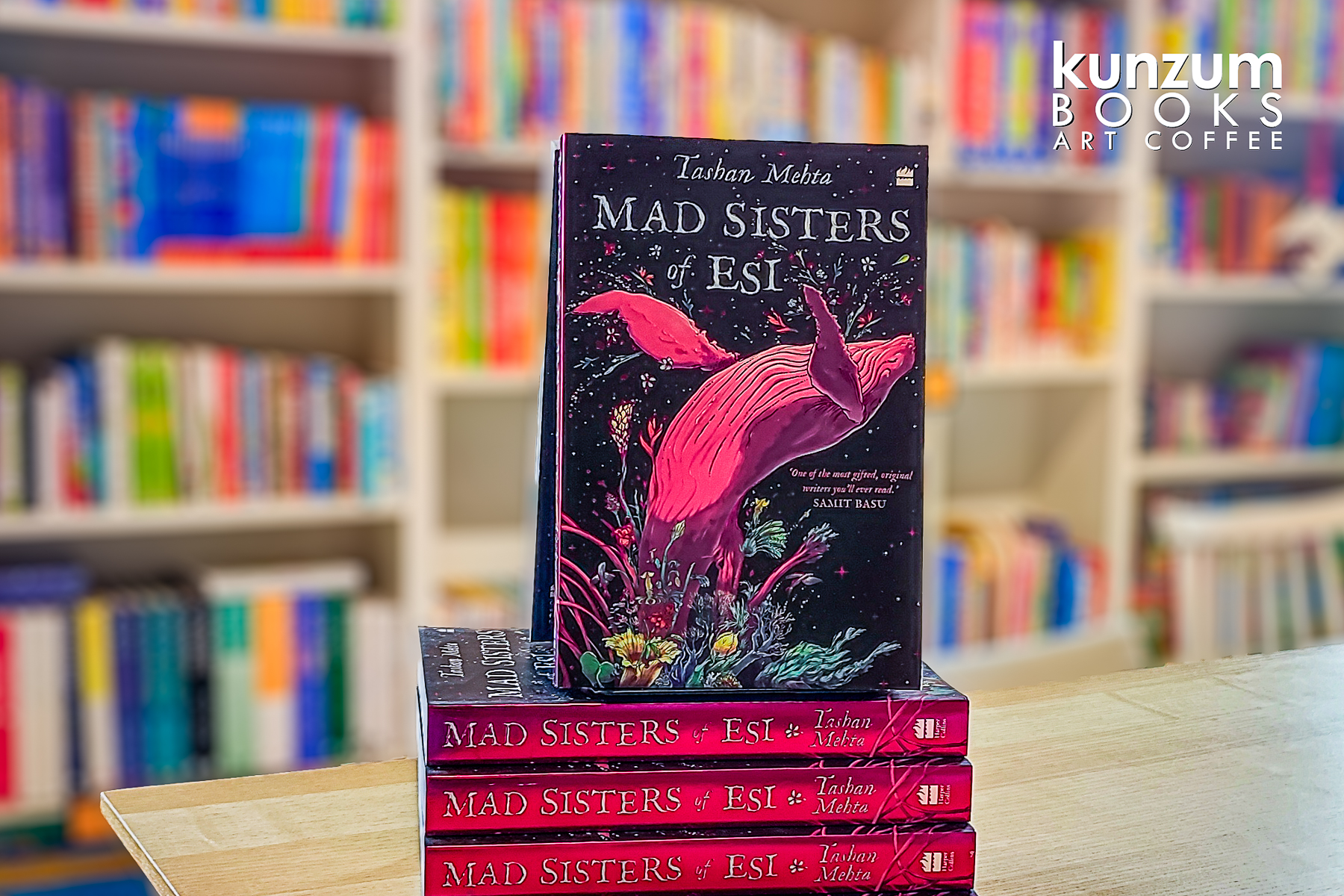
Tashan Mehta’s Mad Sisters of Esi is a novel of great conviction and imagination that encompasses and moves across vast swathes of space and time and focuses on the intimate and the interpersonal: the desire for understanding the universe and finding each other, and the longing of one sister for another, writes Drishya Maity in this review.
“Why do fairy tales fascinate us? Why do they stay by our side long after we hear them and become our little pieces of pleasure?”
Tashan Mehta’s second novel ‘Mad Sisters of Esi’ is a difficult book to talk about in specific terms — not simply because of its circuitous, multi-linear plot and form-defying narrative structure that resists attempts at summarisation, but also because of the wild, circular, labyrinthine shape of this distinctly original story that draws from creation myths, fables, dreams, fairy tales, and the transformative power of madness.
At its core, ‘Mad Sisters of Esi’ is the story of Myung and Laleh, sisters and keepers of the whale of babel—a primordial whale-shaped universe made of a traditional material fabric, a wish-giving fabric, and the fabric of time—within whose interconnected cosmic chambers exist a multitude of worlds: formed, unformed, and still-forming. Myung and Laleh spend their days exploring these strange chamber-worlds and recording their observations on heart-shaped leaves, speaking tales of themselves, the whale, and the enigmatic figure they call Great Wisa, the creator, until one day, Myung wonders: But where did Wisa come from?
Myung’s search for answers takes her farther and farther away from Laleh until eventually she leaves their home in the World of Bird and Leaf. Her journey takes her beyond the whale of babel and across their universe (referred to as the ‘black sea’ in the novel) to the sentient island of Ojda where she finds the fable of Magali Kilta — the madwoman cursed to vomit the memories of the universe who trapped her own children and their descendants and forbade them from ever leaving the island she created. It’s a fable that mirrors Myung and Laleh’s own story and introduces us to the eponymous mad sisters of Esi — Magali and Wisa, the record-keeper and the creator. These are the two narrative arcs—that of Myung and Laleh and that of Magali and Wisa—that form the foundation of the plot from which all the other subplots emerge and unravel and run into each other.
It’s a novel of great conviction and imagination that encompasses and moves across vast swathes of space and time, and yet Mehta remains unconcerned with explaining the finer details of its setting and magic system, focusing instead on the intimate and the interpersonal: the desire to understand the universe and find each other, and the longing of one sister for another. Like many great works of the genre, its pleasures are not without its pitfalls. But even when Mehta meanders, she keeps readers engaged with the sentence-level lyricism of her diction and her masterful obfuscation of the boundaries between intuition and intellect, objective and subjective, finite and infinite. Mehta is a master of implicit world-building and she utilises all the tricks of the trade—leaping across time and place, from one point of view to another, from traditional narrative to epistolary chapters in the form of metaphors, fragments, journal entries, research papers, and archival records from the museum of collective memory, from first-person perspective to third, and present to flashback—to tell this deeply intimate story about love, sisterhood, and madness. Its wild, maddening, circular structure may not work for everyone, and casual readers may even find it repetitive, convoluted, and vague, but fans of literary high fantasy will find themselves right at home in Mehta’s eerie, unfamiliar, lyrical worlds brimming with powerful female characters, opaque magic, fantastical creatures, and ever-changing landscapes.
Walk into your nearest bookstore to read them or Whatsapp +91.8800200280 to order. Buy the book(s) and the coffee’s on us.
About the reviewer:
Drishya (he/him ⸱ b. 1997) is a writer + artist based in Kolkata, India. He was shortlisted for the Mogford Prize for Food & Drink Writing and nominated for the BBA Photography Prize – One Shot Award in 2022. He is @drishyadotxyz on Instagram and Twitter.
